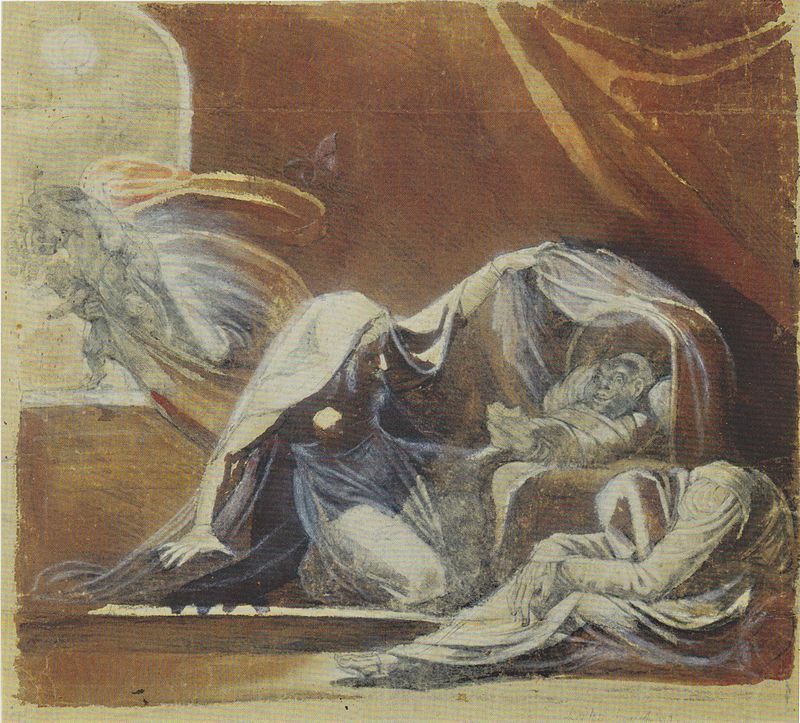The Changeling

The Quintessential Elf
Author Alejandro Melchor
Publisher Mongoose Publishing
Publish date 2002
Human villages near deep and dark forests speak of how elves and their fey kin make a sport of switching their ‘twisted’ children for their healthy babies. While these legends are outright wrong or refer to other creatures, elves raised by human parents are nevertheless referred to as changelings. Elf children in this situation are usually the product of war or violence, as elf parents would never willingly leave their precious offspring in the hands of humans. These unfortunate children grow up alone and different, watching their adoptive parents grow old and die before they are fully mature by elven standards.
Changelings are thus forced to live like humans, adopting a lifestyle that does not suit them in order to survive. There are almost no drow changelings, as they are murdered rather than adopted and, if they find anyone kind enough to take them, they still grow amid prejudice, scorn or open hatred.
Adventuring: The majority of changelings leave their homes when their human parents or mentors die, and the main goal in their minds is finding their real family, and learning how to truly be an elf. They will join with any party that can take them close to elven lands and, if the party already contains an elf, will stick close to him in admiration.
Some changelings find an elven community and try to adapt, but they fail most times. They are forever marked by the humans’ vitality and grow restless with the elves’ view of the long term, occasionally going insane as they keep living and not aging as fast as they are used to seeing people age. Changelings feel that they do not belong anywhere, and will forge immediate bonds with half-elves, who are in a similar, if less traumatic situation.
Role-Playing: Changelings are haunted by the memory of their human upbringing, torn between what they are and what they learned to be. A changeling surprises other elves by his ‘rudeness’ and impatience, which humans find completely normal behaviour. He keeps exploring his nature, trying to reach a balance and will exasperate any other elf by his constant prodding, approaching everything with a much-too-human rush.
His values and morals are those of humans and, depending on how kind or harsh his foster parents were, he might try to honour their teachings. As they age, changelings must accept they are not human and can never hope to be, but the choice is open between learning to be an elf, trying to adapt to human society or taking the middle road and enjoying the best of both worlds.
Bonuses: Changelings are infused with how humans live their lives in comparison to elves: intensely and energetically. They have four extra skill points at character creation as well as an extra feat. Furthermore, they gain an extra skill point at every level just as if they were human. Their favoured class is whatever class in which they have most levels.
Penalties: Their human lifestyles estrange changelings from other elves and keep them from learning many elven secrets. While they enjoy and elf’s racial bonuses in Listen, Search and Spot checks and retain their immunities and resistance to certain magic, they are not automatically proficient with any weapon. They cannot gain levels in prestige classes that have ‘elf’ as a prerequisite, such as the arcane archer in Core Rulebook II, or the ones in the next chapter.
If they wish to learn any feat or skill considered a secret of elven society, they must succeed at a Diplomacy check (DC 25) to represent how they must convince another elf to teach them. Trying to cram as much experience into his life as if he were a human, the changeling’s mind is always in turmoil, suffering a -2 morale penalty to Will saves for the rest of his life.

 Buy me a coffee
Buy me a coffee